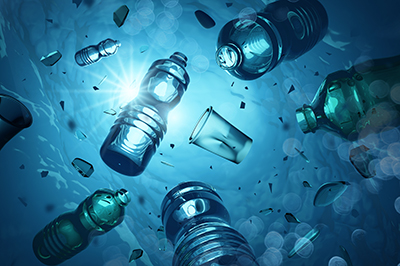The Blog
The 500-Year Problem We Can’t Ignore: The Lifespan of Plastics
October 16, 2024

Plastic is everywhere, revolutionizing our lives with its convenience and durability. Yet, its
environmental cost is steep. Most people don’t fully grasp its long-term impact on the planet.
Plastics take between 20 and 500 years to break down, depending on the type of material and
its exposure to sunlight. Plastics never biodegrade; instead, they photodegrade when exposed
to UV radiation, breaking down into smaller and smaller plastics. Therefore, plastics buried in
landfills or deep in the ocean can last for centuries, or even millennia.
Plastic bags, made from HDPE, LDPE, or LLDPE, take about 20 years to decompose. Despite
this relatively short time, the massive volume of plastic bags used globally creates significant
pollution. Plastic bottles, primarily made from PET, take around 450 years to decompose. While recyclable, many bottles end up in landfills and oceans, breaking down into microplastics. These microplastics infiltrate ecosystems and human bodies, posing unknown health risks.
Because of plastic’s durability, almost every piece of plastic ever made still exists. Scientists
have found microplastics in every ecosystem on the planet. Plastic waste harms wildlife,
ecosystems, and human health. Much of the plastic problem is hidden, with microplastics
shedding from synthetic clothing and car tires, complicating pollution control.
Addressing the plastic crisis requires actions from governments, corporations, and individuals.
You may have heard of the 3 R’s: reduce, reuse, recycle. Responding to the plastic crisis begins
before you buy. Start by refusing single-use plastics. Reduce your consumption of products in
plastic packaging. Reuse containers and bags when you can. Repair your items to extend their
lifespan. Recycle all plastics! Hard plastics can be recycled in your curbside bin, and soft
plastics can be recycled at Smith’s, Walmart, or Recycle Utah.
Recycling alone isn’t enough; most plastic can only be recycled once or twice. We need to
reduce plastic use and find sustainable alternatives. Plastic has changed our world but
demands action to address its long-term impacts. By making small changes, we can help create a future with less plastic waste and a healthier planet.
By Chelsea Hafer